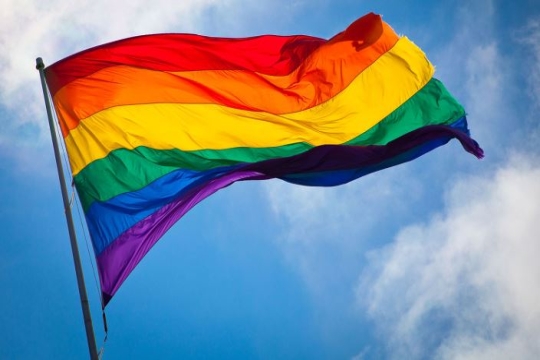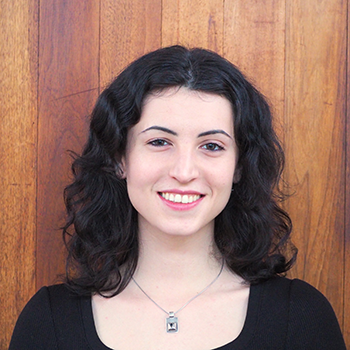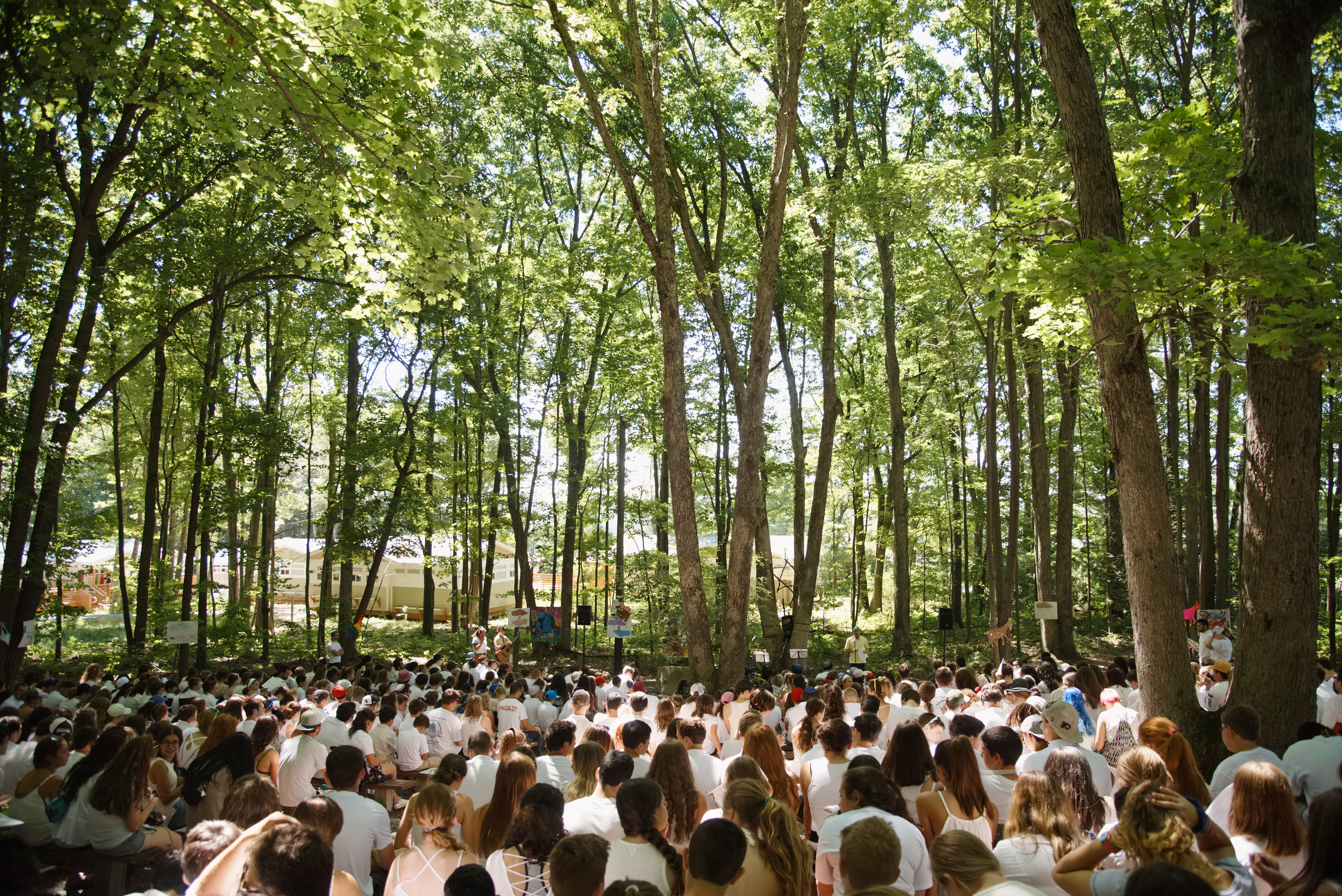
Imagine yourself tucked away in the hills of the Berkshires, at the Union for Reform Judaism's Eisner Camp, on a summer Friday night 12 years ago.
All week long, the campgrounds bustled with energy as campers sprinted from archery to jewelry-making - but on Fridays, the grounds were deserted. Inside the cabins, campers showered and cleaned with feverish intensity. As the sun began to set, a sea of kids clad in white descended from their cabins. Each side of camp would then usher in the Sabbath through Kabbalat Shabbat singing circles - boys on the basketball court, girls in the hockey pavilion.
I adored Eisner and treasured the rhythm of living a communal life guided by ritual. But camp was also the place where I experienced some of the hardest moments of my childhood. I was assigned male at birth but have always expressed myself in feminine ways. When playing Mario Kart with my cousins, I always chose to be Princess Peach. In a self-portrait I drew at age five, I wear an orange skirt, my hair in long, thick braids. These things made me feel like me. At my progressive elementary school and my supportive synagogue in Connecticut, I presented myself exactly as I wanted. Camp was no different.
Except - it was. On those afternoons when campers got ready for Shabbat, I would gaze at myself at the bathroom mirror, hairbrush in hand, with no one to plait my long hair into beautiful braids. Standing among the boys, I found myself preoccupied by a feeling that drew me away from the ritual.
It wasn't just that I wanted to be with my friends on the girls' side. I felt like I was isolated from myself. You might have heard trans people describe themselves as feeling "trapped" or "born in the wrong body." I want to try another way of articulating exactly how I felt in front of that mirror.
The first chapter of Leviticus, Vayikra, details a set of instructions for animal sacrifices that could make a butcher faint - let alone a third-generation vegetarian like myself! One word jumps out from the carnage: tamim. Tamim is typically translated here as "unblemished" or "whole." Elsewhere in the Torah, the word refers to wholeness not in body but in soul. And this same word, tamim, also means "integrity" or "truth," as in the well-known Hebrew phrase urim ve tumim, "Light and Truth."
These etymological connections between bodily form, oneness of spirit, and religious truth are no accident. The Torah reminds us that wholeness in soul is intimately connected to wholeness in body, and that form must be complete for spirit to be true.
This encapsulates some of the complex feelings I encountered that summer at camp. I felt incomplete, un-whole. I felt un-truthful to myself. Being confronted with gender-segregated spaces and rituals at camp was an essential part of how I came to know myself as a trans person - yet I was afraid of sharing how I was feeling out loud at the risk of losing camp. At this time, Eisner had no accommodations for someone like me. But I needed to live as my true self.
When I returned home from camp in 2013, I began the process of transitioning. That fall, my camp director, Louis Bordman, decided Eisner was ready to welcome their first transgender camper. I returned to camp the next summer as Hannah. From the moment I stepped into a cabin on the other side of camp, I felt welcomed - not just by every single bunkmate, but by each of their parents. That summer, I sported braids every Shabbat.
In the years that followed, being trans became an almost incidental part of my life. When I started seventh grade in a new school, I was just another girl who spent her weekends at sleepovers, baking cookies and watching rom-coms. In high school, I was a girl who led an improv group and grew to love computer programming; in college, I became a young woman who hosted a late-night radio show and co-organized an intergenerational Jewish women's conference. Because of these supportive communities, I didn't have to spend my energy fighting for acceptance.
My story is just one episode in a long history of the Reform Movement honoring tradition while broadening its scope to be ever more welcoming. When Eisner accepted me in the girls' bunk in 2013, they were the first religious sleepaway camp in the country to allow a trans child to live in the bunk of their affirmed gender.
But acceptance alone is not enough. I have been able to live as my true self not only because of the places I came into my identity but also the time. When I transitioned, I had access to comprehensive medical care that made it possible for me, my family and my doctors to make informed and difficult choices about my body, choices that allowed me to become whole, to become tamim. Had I been born a decade later , I may not have had this choice. Total bans on hormone blockers force trans kids to live with the distressing, irreversible changes brought on by their biological sex. My life and body would be unrecognizably different were this care denied to me until I was 18.
As more heart-sinking policies pass, I feel betrayed by people who know me personally, yet have allowed themselves to be swept up by simplistic talking points. I feel like my identity has been pushed into the center of the political fray, like my very existence has been made controversial. Sweeping attempts to exclude trans people from public institutions will not cause us to disappear; they will make us feared, hated, and misunderstood.
These attacks against trans kids are not just political moves in a culture war - they are direct attacks against your neighbors, your cabinmates, your fellow congregants. I invite you to join in creating a future in which all children have the opportunity to become tamim - whole in body and whole in spirit.
These remarks are excerpted from Hannah Szabo's sermon at Central Synagogue in New York City on April 4, 2025. The full transcript and video recording can be found on Central Synagogue's website.
Related Posts
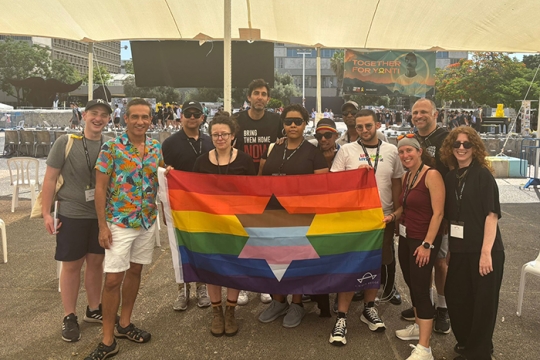
Hope and Pride in Be’er Sheva
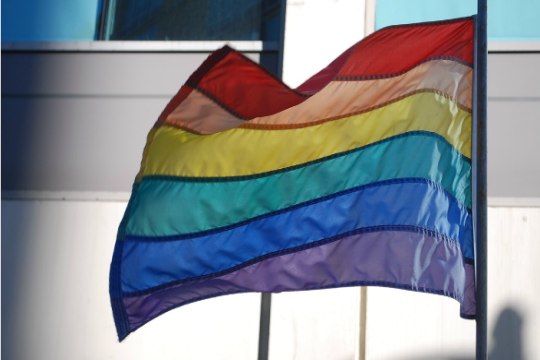
What Should Jewish LGBTQ+ Spaces Look Like?
